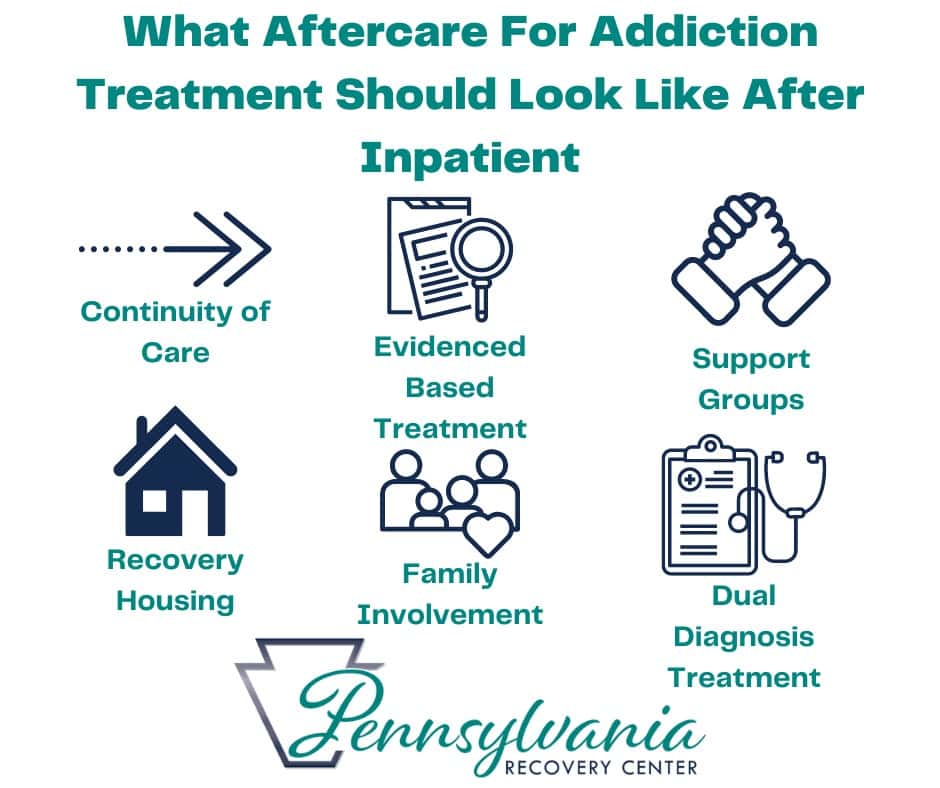Navigating the Aftercare Process: What to Expect After Substance Abuse Treatment
Completing a substance abuse treatment program is a significant achievement, but it's only the first step in a lifelong journey of recovery. Aftercare is a critical aspect of the recovery process, as it provides ongoing support and resources to help individuals maintain their sobriety and build a fulfilling life in recovery. In this blog post, we'll explore what to expect after substance abuse treatment and offer guidance on how to navigate the aftercare process.
Why Aftercare is Important
Aftercare is an essential component of the recovery process, as it can help individuals avoid relapse and build a strong foundation for long-term sobriety. According to the National Institute on Drug Abuse (NIDA), individuals who participate in aftercare programs are more likely to maintain their recovery and experience improved outcomes compared to those who do not participate in aftercare (1).
The aftercare process can take many forms, depending on an individual's needs and preferences. Some common types of aftercare include:
- Support groups: Groups like Alcoholics Anonymous (AA) and Narcotics Anonymous (NA) offer a supportive community of peers who understand the challenges of recovery and can provide guidance, encouragement, and accountability.
- Individual therapy: Ongoing therapy can help individuals address underlying emotional and psychological issues that may contribute to substance use and provide support and guidance as they navigate the challenges of early recovery.
- Outpatient treatment: Outpatient treatment programs offer a more flexible and less intensive level of care than inpatient or partial hospitalization programs and can be a helpful option for individuals who need ongoing support after completing a higher level of care.
- Sober living & Recovery Housing: Sober living homes & Recovery Housing provide a supportive and structured environment for individuals in early recovery, offering accountability, peer support, and a drug- and alcohol-free living environment.
What to Expect After Substance Abuse Treatment
The aftercare process typically begins immediately after an individual completes a substance abuse treatment program. Depending on the individual's needs and the type of aftercare they choose, the process can last anywhere from several weeks to several years. Here are some things to expect during the aftercare process:
- Regular check-ins: Many aftercare programs require regular check-ins with a therapist or counselor, either in person or via phone or video conferencing. These check-ins provide an opportunity to discuss progress, address challenges, and receive ongoing support.
- Continued therapy: Many individuals benefit from ongoing therapy after completing a substance abuse treatment program. Therapy can help individuals address underlying emotional and psychological issues that may contribute to substance use and provide support and guidance as they navigate the challenges of early recovery.
- Building a support network: Developing a strong support network is essential to maintaining sobriety over the long term. Aftercare programs can help individuals connect with peers in recovery, build healthy relationships, and develop coping skills for managing triggers and cravings.
- Addressing co-occurring disorders: Many individuals with substance use disorders also experience co-occurring mental health disorders, such as depression, anxiety, or post-traumatic stress disorder (PTSD). Ongoing therapy and medication management can help individuals address these co-occurring disorders and manage symptoms.
- Monitoring progress: Aftercare programs typically involve ongoing monitoring of an individual's progress, including regular drug tests and check-ins with treatment providers. This monitoring helps ensure that individuals stay on track and provides accountability and support.
Navigating the Aftercare Process
Navigating the aftercare process can be challenging, but there are steps individuals can take to make the process more manageable and successful. Here are some tips for navigating the aftercare process:
- Take an active role in your recovery: The aftercare process is a collaborative effort between the individual and their treatment providers and support network. It's important to take an active role in your recovery by participating in therapy, attending support group meetings, and practicing self-care.
- Set realistic goals: Setting realistic goals for yourself can help you stay motivated and focused during the aftercare process. Start with small, achievable goals and gradually work your way up to more challenging goals over time.
- Practice self-care: Taking care of yourself is essential to maintaining sobriety and building a fulfilling life in recovery. This may involve regular exercise, healthy eating, getting enough sleep, and engaging in activities that bring you joy and fulfillment.
- Stay connected with your support network: Developing and maintaining a strong support network is essential to long-term recovery. Stay connected with peers in recovery, attend support group meetings, and lean on your loved ones for support when needed.
- Be open and honest with your treatment providers: Honesty is crucial to making progress in recovery. Be open and honest with your treatment providers about any challenges or struggles you may be facing, and work together to find solutions and strategies for success.
8 Key Aspects of a Solid Aftercare Plan When Leaving Inpatient Treatment for Addiction
If you or a loved one is preparing to leave inpatient treatment for addiction, it's essential to have a solid aftercare plan in place. Here are some key things to look for in an aftercare setup:
- A customized plan: A good aftercare plan should be tailored to your individual needs and goals in recovery. It should take into account your specific addiction history, mental health concerns, and social support network.
- Continuity of care: Aftercare should involve ongoing support from the same treatment team that helped you during inpatient treatment. This ensures continuity of care and a seamless transition from one level of care to another.
- Evidence-based treatment: Look for aftercare programs that utilize evidence-based treatment approaches, such as cognitive-behavioral therapy (CBT), motivational interviewing (MI), and relapse prevention strategies. These approaches have been shown to be effective in promoting long-term recovery.
- Access to support groups: Support groups such as 12-step programs or alternative peer support groups can be a valuable source of ongoing support and encouragement during the recovery process.
- Dual-diagnosis treatment: If you have co-occurring mental health disorders, it's crucial to find an aftercare program that offers dual-diagnosis treatment. This ensures that both your addiction and mental health needs are addressed simultaneously.
- Family involvement: Family involvement can be a crucial component of aftercare. Look for programs that offer family therapy or support groups to help your loved ones understand addiction and the recovery process.
- Sober living arrangements: For those who need extra support in early recovery, sober living arrangements can provide a safe and supportive environment to transition back into the community.
- Follow-up care: Aftercare should include regular follow-up care to ensure that you are making progress in recovery and to make adjustments to your treatment plan as needed.
In conclusion, the aftercare process is a critical aspect of the recovery journey, providing ongoing support and resources to help individuals maintain their sobriety and build a fulfilling life in recovery. Whether you choose support groups, individual therapy, outpatient treatment, or sober living, it's important to take an active role in your recovery, set realistic goals, practice self-care, stay connected with your support network, and be open and honest with your treatment providers. Remember, recovery is a lifelong journey, and the aftercare process is an essential part of that journey.
If you or a loved one is looking for help with aftercare then you found the right place! Call us here at Pennsylvania Recovery Center where we offer partial hospitalization and intensive outpatient therapy for addiction. We are waiting for your call at 610-233-4342.



